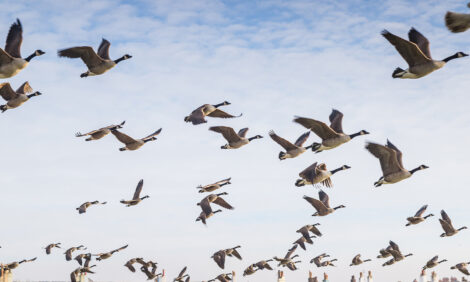



Why food loss and waste are among our biggest sustainability challenges, and how we can create change
It is estimated that to feed the world’s population in 2050, we will need to produce 56% more calories than we do today. However, at the same time we need to reduce our reliance on the world’s natural resources, reduce carbon emissions and habitat loss and ensure our food systems are sustainable.It is reported that we do not lack sufficient calories on a global scale to feed the world’s growing population, but rather that the calories produced are not equitably distributed and not readily accessible to all, as evidenced by overconsumption on the part of 2 billion people while 800 million remain undernourished.
Currently 30% of all food produced worldwide is lost in production and 30% is wasted by consumers. Food loss and waste also accounts for 8% of the world’s total emissions—that’s a footprint equivalent to a nation, third only to China and the US. The degree of loss and waste varies by geography and stage of the value chain. For example, it is reported by the World Resources Institute (WRI) that 17% of all calories produced in North America and Oceania are lost in production, while 61% are wasted at the consumer level. This contrasts starkly with South and Southeast Asia, where 32% and 13% are lost and wasted in production and at the consumer level, respectively.
Challenging food loss
So how do we begin to reduce this huge loss of valuable food? Animal protein loss and waste accounts for 12% of global calorie loss. This is an area we at DSM Animal Nutrition & Health are committed to combatting. For many years, we have been developing nutritional solutions to help reduce the amount of food that is lost and wasted at all stages of the value chain.
It is estimated by FAO that 20% of global milk production is lost or wasted, with a large proportion of this occurring at the consumer level. However, loss can occur early on in the value chain—in dairy, this means it begins with the cow. It is estimated that the incidence of clinical mastitis in high-producing herds can be as high as 33%, leading to a significant loss in milk value, with a major proportion of this attributable to discarded milk due to high somatic cell count and the use of antibiotics. At DSM we have created nutritional programs that can help in this regard; feeding higher levels of vitamin E during certain life stages has been shown to be very effective at reducing the incidence of clinical mastitis by as much as 40-60% and thereby reducing milk loss.
Shifting consumer habits
A good part of the problem still lies with consumers, particularly in some parts of the world. In South and Southeast Asia, only 13% of food is wasted by consumers, in North America and Oceania this rises to a huge 61%, according to the WRI.
At DSM, we work across the dairy value chain from the cow to the dairy processor to help reduce food loss and waste. One example is Pack-Age®, a cheese ripener preventing the formation of mould in hard cheeses thereby reducing food loss. Pack-Age® is a membrane solution to pack and age semi-hard to hard cheese, while protecting it against mould during the ripening process. If all Gouda and Parmesan cheeses globally were to be ripened in Pack-Age®, this would save around 200,000 tonnes of cheese every year and would reduce the amount of milk needed for mature cheese production by 3.55 billion litres a year.
It is estimated that 17% of dairy products such as yoghurt are wasted, 80% because of expiry date. To tackle this issue, we have developed protective cultures such as Delvo®Guard that extend the shelf life of yoghurts, thereby helping reduce food waste.
Committing to improving the sustainability of the animal protein production chain at every stage requires an inclusive approach, and we hope that many others will follow in our footsteps. At DSM we have signed up to the UN’s Sustainability Development Goal 12.3 with the aim of reducing food loss and waste by 50% by 2030. We do this by working with everyone from scientists, industry partners, customers and our own business partners to the World Food Programme and Africa Improved Foods to make these goals a reality.
We believe in sustainable, healthy nutrition for all within planetary boundaries. As a result, we launched our We Make It Possible strategic initiative, which builds on many years of work, innovation and collaboration through the value chain to help improve the sustainability of animal protein. The scale of the challenge is not small, but we are convinced that the industry can transform itself from within and become more sustainable.
After all, if not us, who? If not now, when?
To know more about all the DSM solutions, visit us at: https://www.dsm.com/corporate/solutions.html
To know about our We Make It Possible initiative, visit our website:
https://www.dsm.com/wemakeitpossible/en_us/home.html



